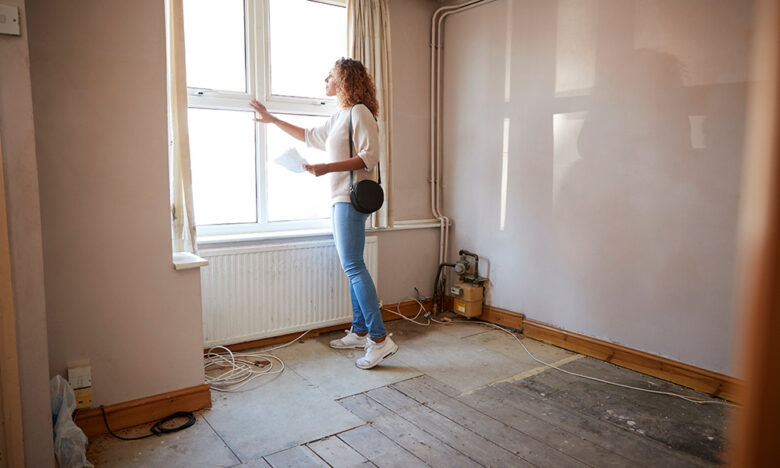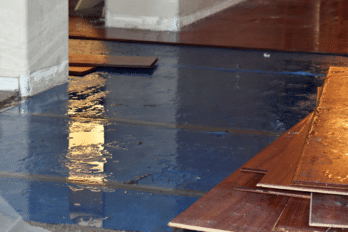
How Do I Know What I Can Afford as a First-time Buyer?
Buying your first home is an exciting milestone for many people, but it can be hampered by confusion around the process, unexpected costs and a lack of understanding about how much you can afford to spend. Salary, deposit amount and regular expenditure will affect how much you can borrow, so how do you know how much you’ll be able to secure and what schemes are out there to help first-time buyers get that crucial first step on the property ladder?
Who qualifies as a first-time buyer?
It may seem obvious, but you’ll be classed as a first-time buyer if you – and anyone else you’re buying the property – have not previously owned a residential property. If you’ve owned property before, including overseas or as part of a shared ownership scheme, or you have inherited property, it’s unlikely you’d be classed as a first-time buyer, so you won’t benefit from any schemes to help people buy their first home.
What schemes are available for a first-time buyer?
There are several government initiatives in place that are designed to help first-time buyers. This includes First Homes, which is open to any first-time buyer in England over 18 who has an annual household income of less than £80,000, or £90,000 in Greater London. It allows people to buy a home for 30% to 50% less than its market value, with the discount applied to the homes forever, meaning that generations of new buyers will be able to buy the property at the reduced price. Prospective buyers must have at least a 5% deposit and be able to get a mortgage for at least half the price of the property. The homes cannot cost more than £420,000 in London or £250,000 anywhere else in England after the discount has been applied.
As the ever-bigger deposits needed to buy a home are a stumbling block for many, the government has also introduced a Lifetime ISA (LISA) to help people save to buy their first home. With a LISA, anyone aged between 18 and 40 can pay in up to £4,000 a year, and the government will add a 25% bonus, up to £1,000 per year. If you’re buying a home with another first-timer, they can also use their LISA savings and government bonus to pay towards the property. You can use the Lifetime ISA with other government schemes, even if you’re doing a self-build, so long as you’re purchasing a property that costs £450,000 or less with any residential mortgage.
Also designed to help with the problem of saving a deposit, the mortgage guarantee scheme offers lenders the option to purchase a mortgage guarantee where a borrower only has a 5% deposit. The guarantee compensates mortgage lenders for a portion of their losses if the property is repossessed, making it less risky to lend to those with smaller deposits.
You can also get an equity loan towards the cost of buying a new-build home as a first-time buyer. With this, you can buy a home up to and including a maximum property purchase price limit which varies by region – from £186,000 in the northeast to £600,000 in London.
To be eligible for this, you must pay a minimum deposit of 5% of the property purchase price and arrange a repayment mortgage of at least 25% of the purchase price. You can then borrow an equity loan to cover between 5% and 20% of the purchase price of your new build home, or up to 40% in London.
The equity loan percentage you borrow is used to calculate your interest and loan repayments, and it’s interest-free for the first five years, rising to 1.75% in year six.
Sharing ownership may be another option to explore if you’re still struggling to make the numbers work. Here you’d take a mortgage out on a share of a property and pay rent to a housing association on the remainder. This means you don’t have to save as large a deposit or secure as big a mortgage. You can buy a bigger share of your home when the time is right if you choose, a process known as staircasing.
How do lenders decide how much they will lend?
Of course, whether you need to rely on one of these schemes or buy a house the traditional way, you’ll need someone to lend you the funds to do so. But how much will you get? Most lenders will offer you four times your salary, so if you earn £30,000, expect to be able to borrow £120,000. Some lenders will offer you more than four times your earnings, but this may come with a higher interest rate.
If you’re buying with someone else, you can combine incomes by adding both salaries and using a lower multiplier, such as three, or by multiplying the higher income and adding the lower one on top. Generally, a lender will opt for whichever option gives the highest figure. They’ll also carry out affordability checks, such as looking at your outgoings and credit score, to determine whether you can meet the repayments.
How do you know what you can afford?
The best way to know what someone is willing to lend you to secure a property is to get an agreement in principle. With many lenders, you can apply for this online so long as you have information such as your income, outgoings and previous addresses for the past few years. While this isn’t a binding offer, it is the first step to arranging a mortgage, and it will show estate agents and sellers that you’re serious about buying.
Whatever your lender offers you, it’s essential to take the time to ensure it’s an amount you can afford, so check your fixed outgoings and make sure you can meet the mortgage repayments on top of these. Don’t forget to factor in the extra costs you’ll incur when buying a home, and put some money in the budget for maintenance, upgrades, and new fixtures and fittings as these will likely be needed in the short-term too. Find out more in our blog, What are the Side Costs of Buying a Home in England?
Guarantor mortgage
If your mortgage offer comes back lower than expected or you simply can’t save the amount needed for a deposit, one option to explore could be a guarantor mortgage which allows parents to use either their savings or their property as security against their child’s mortgage. If using their property, a lender will usually secure a charge of between 10% and 25% of the new property’s value against the parent’s home. Once the child has paid back a large proportion of their mortgage, the charge will be released. Savings deals allow parents to deposit 5% or 10% of a property’s value into a special savings account with their child’s mortgage lender, taking the place of a standard mortgage deposit. This acts as collateral in case the child defaults on their mortgage.
How much do I need to save to buy a house?
How much you need to save up for a deposit will depend on the value of the home you’re buying, the mortgage you can secure and any support schemes you can utilise.
So, for example, if you could find a home for £100,000, the lowest deposit would likely be 5% or £5,000. A property of this value would likely be outside of London, so you’d also be able to look into an equity loan of up to 20% or £20,000, meaning you’d need a mortgage of £75,000.
If you were looking to buy a house costing around the UK average of £275,000, you could get an equity loan of 20% (£55,000) outside London or 40% (£110,000) in London. Again, the minimum deposit would be 5% (£13,750), but if you can get towards 10% or higher, you could benefit from better interest rates on your mortgage.
For those with bigger budgets, a £500,000 property would require at least a £25,000 deposit, but you could benefit from an equity loan of £100,000 or £200,000 in London. This would mean you’d need a mortgage of either £375,000 or £275,000, depending on where you’re buying. It’s worth noting that stamp duty kicks in for first-time buyers at £300,000, provided the property you’re buying costs £500,000 or less, so be sure to factor in 5% – in this case, £10,000 – for this. First-time buyers purchasing property for more than £500,000 will pay stamp duty at the normal rates.
If you’d like more information on buying your first home, read our blog. What advice would you give to a first-time buyer?
The Novello Approach
We know that buying a house can be confusing, particularly the first time around. From the language and industry terms, you may not understand the constant spending on certificates, surveys, solicitors and more. Novello’s Private Client Surveying Service ensures you receive a comprehensive and easy-to-understand building survey that will help you truly understand the property you’re buying. We’re also here to guide you through the rest of the house-buying process. We’ll liaise with your solicitor and ensure they’re kept informed throughout; we’ll listen if you have any concerns, advise on what your survey results mean and offer cost estimates for any major work that may need to be done. We’ll even put you in touch with any specialists you may need if defects need further investigation. Once you have a clear idea of the state of your property, we’ll then advise on any renegotiation that may be required, so you pay the right price.
We pride ourselves on being reliable, responsive, impartial and knowledgeable from when you first contact us until you move into your home, so contact us today to find out more about how we can help.

